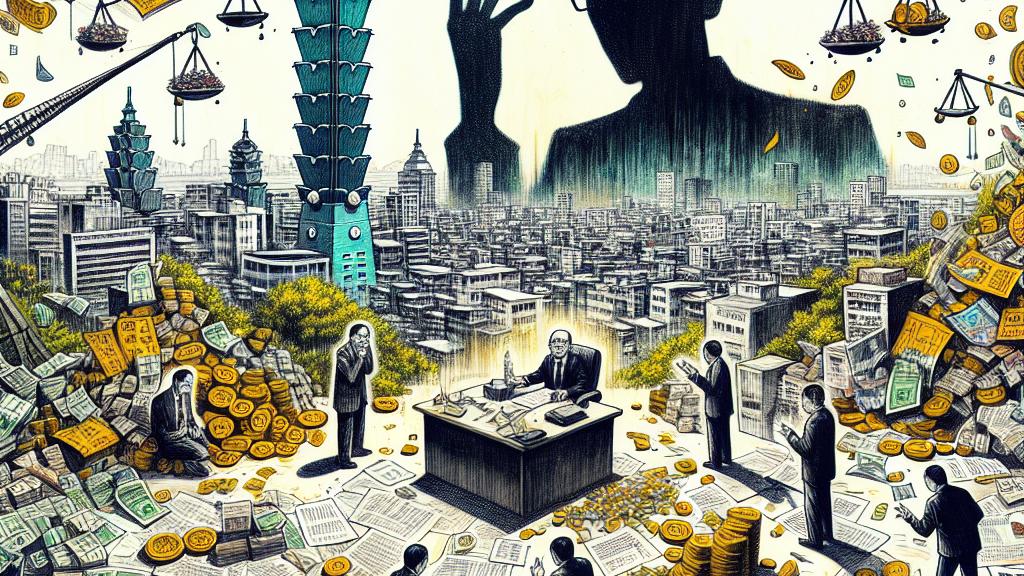DPP Councilor Detained for Alleged Corruption in New Taipei City
Overview
- Councilor Lin Ming-jen faces serious allegations of misusing NT$5 million in public funds through fraudulent payroll schemes.
- The investigation, spanning from 2009 to 2016, exposes troubling corrupt practices that raise significant public trust issues.
- In a related scandal, Councilor Pai Pei-ju is implicated for misappropriating NT$12 million, prompting urgent calls for reform.

A Staggering Revelation of Corruption
In the vibrant city of New Taipei, an alarming scandal has erupted surrounding Councilor Lin Ming-jen of the Democratic Progressive Party (DPP). He stands accused of pilfering NT$5 million (approximately US$156,233) from public funds, all through intricate fraudulent payroll practices. This shocking revelation has not only led to his detention, mandated by the New Taipei District Court, but it also casts a long shadow over the integrity of local governance. Such allegations provoke a critical examination of those in power, igniting public outcry for greater accountability. Furthermore, they remind us that even trusted officials can betray the public’s confidence, a lesson that reverberates throughout the political landscape.
Investigation Unfolds with Serious Consequences
The investigation launched by the New Taipei District Prosecutors Office is nothing short of comprehensive. Authorities have executed coordinated raids on Lin’s homes and offices, meticulously collecting evidence that includes financial records and suspicious documents. While Lin remains in custody facing serious charges, his assistant, Yang, has been granted bail but under strict conditions that prevent her from leaving Taiwan. This case has already led to interviews with multiple suspects and witnesses, revealing layers of deception that expose a deeply troubling culture of corruption in local politics. As more details unfold, the public is left to wonder how widespread such malfeasance truly is, and what it means for their trusted officials.
A Moment of Reckoning for Taiwanese Governance
Beyond Lin’s case lies a broader narrative about governance in Taiwan that demands attention. This scandal has raised fundamental questions about ethical standards and accountability in public service. Notably, another councilor, Pai Pei-ju from the Kuomintang, faces her own allegations of misusing a staggering NT$12 million, further illustrating the pervasive nature of these issues. Such incidents compel citizens to call for lasting reforms and enhanced oversight mechanisms to mend the frayed trust in their governmental institutions. The growing clamor for integrity echoes through the community, reminding leaders that transparency and ethical conduct are non-negotiable if they hope to regain the public's faith.

Loading...